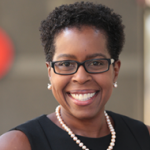“A relationship with no trust is like a cell phone with no service or internet, all you can do is play games.” – Anonymous
Trust is one of those gems in life that may take a lifetime to gain and only a few moments to lose. Building trust takes integrity, genuine intent, a strong skill set, and proven results. Ask yourself, does your team see these things in you as a leader? Do you hold others accountable for the same assets you see in yourself?
We all build and develop trust differently. For some, trust comes with verbal acknowledgement and for others, with acts of service. How do you trust other people? What characteristics do you deem necessary to trust others? For example, some may find that trust is built by taking a genuine interest in a teammate’s family life and others may find trust is built when you are asked your opinion on major project challenges for the first time.
[ How do your team meetings stack up? Read also: Zoom tips: 6 ways to make meetings better. ]
Figure out how your teammates develop trust: Words vs. actions
I put a lot of trust in people when their words are supported by their actions, whether good or bad. Someone once told me that they do not like to send emails with their status reports, but would prefer a phone call or video chat instead, so they set up weekly meetings to chat. The fact that this person consistently kept these meetings and showed up on time further strengthened my trust in them to be accountable. It may not have been my preferred method of communication, but it worked for our professional relationship.
If I can depend on others to follow through with what they say, then my trust in them increases significantly. However, a few instances of failing to keep one’s word, for me, really causes distrust and accountability issues in a relationship.
“Trusting you is my decision. Proving me right is your choice.” – Anonymous
Sometimes people trust how they want to be trusted, meaning it may take work to understand how others build trust in you. This concept reminds me a lot of The 5 Love Languages by Dr. Gary Chapman. We feel love and trust in different ways. It will take work to figure out how your teammates find trust in you.
Four foundational parts of credibility
Just like love, trust is a verb not just a noun. This is one of the key takeaways from the Franklin Covey: Speed of Trust Foundations course I attended a few weeks ago. I highly recommend this course to anyone looking to strengthen their ability to build trust on a team and in personal relationships. The course builds a foundation for securing trust in relationships based on the four areas of credibility: integrity, intent, capabilities, and result.
1. Integrity - Trust is built when someone’s values are supported by their actions. Have you promised something that you failed to deliver on? How do you think others’ trust for you was hindered? Your behavior should mimic your words. There should be similarities between your values and behavior.
2. Intent - Showing genuine concern for others’ well being provides a basis for trust. Do you truly want the best for others? The intentions of your heart will show outwardly.
3. Capabilities - Having confidence in your skills and talents gives others comfort and builds trust. When someone accomplishes a task well, others will gain assurance that you can be trusted to execute the task at hand.
4. Result - Do you have a winning mindset? Others should see your expectation to produce strong results in each task. Your activities should show a mindset of finishing with high expectations. When leading others, trust is built by continuing to finish strong to the completion of a project, just as you would expect yourself.
Three ways I build trust
Currently, I am Vice-Chair of Red Hat B.U.I.L.D. (Blacks United in Leadership and Diversity), a Diversity and Inclusion community. I am one of the founding members and have been on the leadership team since the group’s inception. Based on this experience, here are some tips on building trust in a community:
1. You can't fake integrity: There will be a time when your leadership and friendship will be called upon. In that moment, be genuine and transparent. In fact, when a fellow community member reached out to me saying she was having a difficult time dealing with the current social injustices affecting our community, she and I connected and had a deep conversation. We didn’t talk about B.U.I.L.D. business, we just discussed complex issues facing both of us as Black females and how to handle all of what’s being asked of us at work and home.
That open and honest conversation with her helped me to trust her even more. She and I just got very real with one another and realized we both were dealing with similar challenges. It’s amazing how trust can be built in the simplest ways like the conversation. Don’t overthink it.
2. Allow others to shine: Your teammates need to know that you trust them to handle the tasks at hand. It is your duty as a leader to provide the opportunities for them to excel and grow. I consistently strive to encourage B.U.I.L.D. community members to take on more leadership and visible roles in the community. Why? Because growth can only happen when change occurs. Encourage your team to be involved and do more. No one ever hits the winning shot by just sitting on the sidelines. Always promote growth opportunities amongst the community.
3. Lead by example: I don’t ask anyone to do more than I’m willing to do myself, from cleaning the breakroom after a catered event to unloading 50 pounds of rice for a food packing event with a Rise Against Hunger service project. No one is above getting their hands dirty to do the hard work. This builds trust amongst your community members and leadership team.
They will see that you are willing to do the smallest of tasks – and trust you with the larger, more visible ones. As I have contributed to many smaller tasks in B.U.I.L.D., when the big opportunity came to have a diversity and inclusion discussion with Paul Cormier, Red Hat’s President and CEO, I knew I had the community’s trust to communicate B.U.I.L.D.’s goals with him and share the great work the community continues to do.
In general, gaining trust is not a passive action. As a leader, you have many opportunities to build trust and gain confidence in yourself and your team. Learning how to build and give trust must be intentional. These actions will continue to help personal and business relationships flourish, producing greater results.
[ Are you leading culture change? Get the free eBook, Organize for Innovation, by Jim Whitehurst. ]






